
by Christine Wells
I'm often asked why I chose to write historical romances and why I set them in England.
English history has fascinated me ever since I can remember. I suspect it's something to do with the glamour of royalty, the political power struggle between kings and subjects and the fun of discovering the origin of so many traditions and expressions that endure throughout the English-speaking world today.
It was my father who first introduced me to this wonderfully rich world of history. When I was very young, he would tell me enthralling tales about English kings and queens, great battles and epic struggles for the crown. He had a way of making history come alive that I can only strive to emulate in my novels.
I'll never forget the way he disillusioned me about some of the innocent-seeming nursery
 rhymes I grew up with!
rhymes I grew up with!Mary, Mary, quite contrary
How does your garden grow?
With silver bells and cockle shells
And pretty maids all in a row.
 Sounds delightful, doesn't it? But there's quite a bloody history to that little verse. It referred to the reign of Queen Mary, Henry VIII's daughter, during which she put many Protestants to torture and death. Silver bells were thumbscrews, cockle shells were instruments attached to the genitals. (Ouch!) Pretty maids referred to the Maiden, a forerunner of the guillotine, used for more efficient beheading. It seems the plain old executioner's axe didn't do the job in one go a lot of the time. Yikes!
Sounds delightful, doesn't it? But there's quite a bloody history to that little verse. It referred to the reign of Queen Mary, Henry VIII's daughter, during which she put many Protestants to torture and death. Silver bells were thumbscrews, cockle shells were instruments attached to the genitals. (Ouch!) Pretty maids referred to the Maiden, a forerunner of the guillotine, used for more efficient beheading. It seems the plain old executioner's axe didn't do the job in one go a lot of the time. Yikes!Baa Baa Black Sheep was a protest about wool taxes. Pop Goes the Weasel is thought to be about many a poor man's habit of pawning his Sunday coat to pay for his pleasures, then redeeming it in time for church on Sunday. "Weasel and stoat" was Cockney rhyming slang for coat, and to "pop" was to pawn.
 Old Mother Hubbard is actually about Cardinal Wolsey's failure to secure Henry VIII a divorce from Katherine of Aragon. It's interesting that so many rhymes seem to come from Tudor times.
Old Mother Hubbard is actually about Cardinal Wolsey's failure to secure Henry VIII a divorce from Katherine of Aragon. It's interesting that so many rhymes seem to come from Tudor times.And for a more obscure reference, did you know that Little Miss Muffet actually existed? Her name was Patience and her stepfather was a famous entomologist who wrote the first catalogue of British insects. One of his spiders escaped while poor Patience was eating her breakfast, and so the nursery rhyme came about.
 What was your favourite nursery rhyme as a child? Do you know any nursery rhymes with interesting backgrounds? If you're a reader of historicals, what attracts you to that era? One lucky reader will win a signed copy of THE DANGEROUS DUKE!
What was your favourite nursery rhyme as a child? Do you know any nursery rhymes with interesting backgrounds? If you're a reader of historicals, what attracts you to that era? One lucky reader will win a signed copy of THE DANGEROUS DUKE!

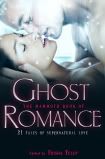
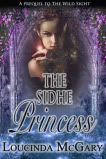
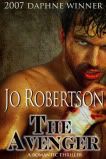
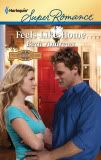
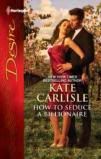

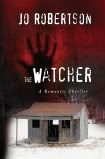



















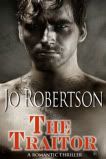




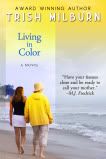
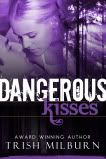









































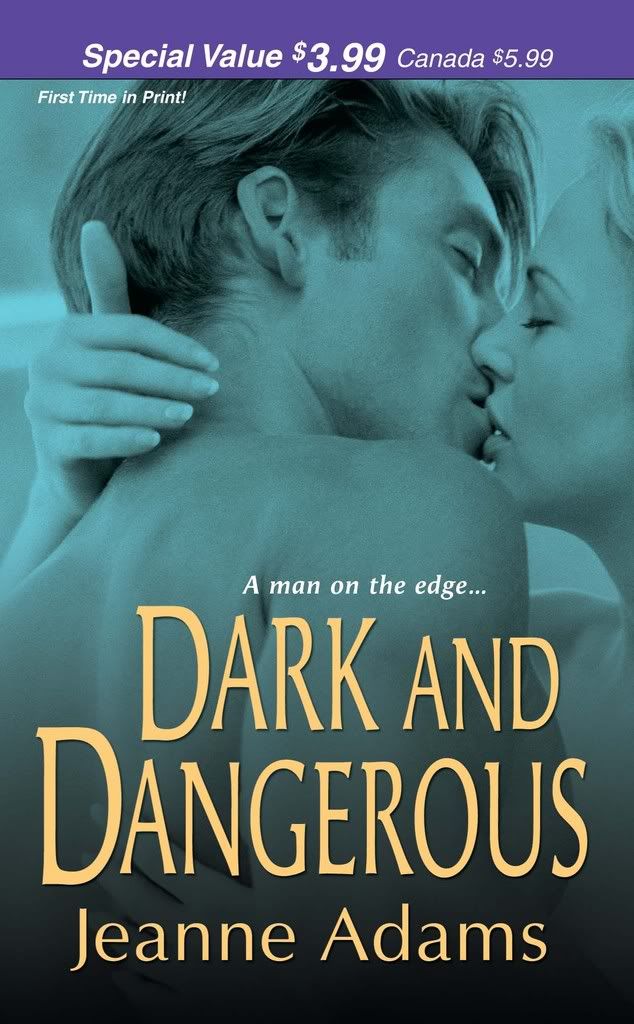



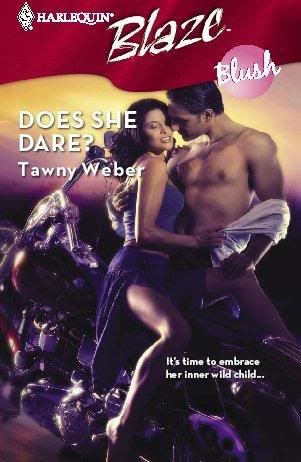





80 comments:
Hmm... favorite nursery rhyme? Mary, Mary, Quite Contrary?
Fedora does it again! I think we need a rhyme about your relationship with the Golden Rooster! How many times has he been to your house now? Or have you lost count?
Yikes, after rereading your post, I find that Mary was quite a blood-thirsty ruler! Eek!
I always thought the one about Jack jumping over the candle stick was cute, but there's probably some horrible story to it, too!
What I enjoy about reading historicals is the chance to enjoy a totally different time and place--I guess it's part of the reason I read, period, to have the vicarious thrill of being someone else :)
I'm still trying to wrap my mind around some of these rhymes though--Christine, I don't think I'll be able to sing along with that kids' CD quite so cheerfully now! ;)
LOL, sorry to spoil it for you, Fedora. But children are often gruesome little devils anyway, aren't they? I remember singing some lyrics to On Top of Old Smokey that were in very poor taste when I was a child and doing it with a lot of relish, too!
I agree, there's that wonderful escapist element to historicals, isn't there?
I'll have to look up Jack and his candlestick and get back to you;)
Hey, Fedora, do you have a rhyme about the chook? Congrats!
Fedora, Fedora, all in leather!
Loves a bird who wears a feather!
Christine, that black sheep is seriously creepy! Does he have an axe hidden in that fleece? I think he does! It's something about the eyes and the evil angle of the ears!
Did you know Georgey Porgey was about the Prince Regent - and how awfully fat he got! I remember seeing his coronation robes at Grimesthorpe Castle (isn't that a grim name for a stately home?). Apparently, they just had to keep letting them out right up until the moment of the ceremony so he'd fit into them. Seriously, these robes were HUGE!
I think I was in love with English history because I had a very safe and comfortable childhood which translated for a diehard romantic child as deadly dull! There were no knights on horseback or Heathcliffs or glamorous balls in my backyard. Not to mention how much I loved old movies like the Errol Flynn ones! All the dashing, glamorous, exciting stuff seemed to have happened in Europe. And not only in Europe, but in Europe a couple of hundred years ago!
Incredibly interesting topic, Christine! I'd known some of those stories about the nursery rhymes but not all of them. They're sort of like the Brothers Grimm stories which were quite dark and bloody in the original, apparently.
Fedora, again!! You rock, girl.
I'm game:
It's raining, it's pouring
The chook he is a-snoring,
At Fedora's pad
He's quite the lad
But he's going in the morning.
What attracts me to the historicals is the language. I love history (minored in college), but it's the very proper social customs and proprieties of the historicals that I find fascinating, especially when earthiness sizzles beneath the surface.
Ring a ring a rosey
A pocket full of posey
A tishoo A tishoo
We all fall down.
Was about the black plague. The first symptoms were little pink/red blisters that came up in a ring (like a ringworm) then came the sneezing and then death.
The pocket full of posies relates to the practice of warding off evil spirits/plague by herbal remedy...
The second verse -
The cows are in the meadows
eating buttercups
Atishoo A tishoo we all jump up..
came about later on when the cure to smallpox came from milk maids and the cow pox - the power of healing was supposed to have come from the buttercups the cows ate..
Hi Anna, Snork! I knew it wouldn't be long before certain people were making up their own rhymes.
Georgey Porgey is a great one. I read somewhere it referred to George Villiers, James I's lover but it didn't seem to fit as well as the Regent! Fit being the operative word. He sounds like an absolute whale. But I suppose when you see the menus at the Brighton Pavillion, you can understand why.
I think you're right about the glamor and I also think historically, before police became an institution, people fought their own battles and had their own adventures rather than calling in the authorities, which seemed to make things more interesting, too.
nursery rhymes? Only one I can think of is this one:
Tapio Rautavaara: Sininen uni (Blue dream)
http://www.youtube.com/watch?v=-OgdsrSZ5VE
On the video you get to see HIM, for some reason, though. And someone has been kind enough to translate the words:
Every night, when lights go out
And real night comes
So mr.sandman rises
And gently knocks the door
He has sleepy shoes
with them he tiptoes
he sneaks in from the door
and jumps behind closet
And he has sleepy hat
and blue, sleepy belt
and he eats sleepy icecream piece
with his tiny teeth
And he has a blue car
and that car buzzes like this
surrur, surrur and goes
towards blue land of dreams
And little umbrella
is all tilted
And he carries a blue book of dreams.
And he takes children with his car to the
blue land of dreams.
surrur, surrur and there is a blue road that leads there
And there is a golden forest.
And in forest there is a golden tree.
And bluebird of dreams.
And the bird has a golden mouth.
And that bluebird of dreams,
It cradles children to sleep,
It sings a sleepy song,
la-la-lal la-la-lal lal-laa.
Miljoonasade: Marraskuu (November):
http://www.youtube.com/watch?v=ccpaaZvDL1k
http://en.wikipedia.org/wiki/Tapio_Rautavaara
Congrats on the GR, Fedora.
Twinkle,Twinkle Little Star is my favorite nursery rhyme. It's the only one that I still remember the words to. The words are so beautiful. It still reminds me of my childhood and how I used to imagine being a star in the sky. I didn't know the background about this nursery rhyme until I just looked it up. It was written by two sisters, Ann and Jane Taylor. I love historicals. I guess one of the reasons is that the story transports you to the past.
Oh my goodness! This doesn't exactly have anything to do with todays topic, but I found also this when I was looking for that other song:
http://www.youtube.com/watch?v=U6HakYbNpNg&feature=related
Congrats flchen enjoy your day with him
Great post Christine firstly I love historicals for their glamour and estates and adventures they take me to places I can never go (unless someone invents a time machine) I love reading about Kings and Queens and the way the people all lived and their clothes are just beautiful.
I never knew any of that about the nursey rhymes no wonder my grandson loves them all. At the moment his favourites are Humptey Dumptey Jack and Jill and intsey wintsey spider (I am sure I haven't spelt that right) and he sings them all the time.
My Dad used to sing
Its raining Its pouring
The old man is snoring
He Bumped his head
on the back of the bed
and couldn't get up in the morning.
I have no idea where it came from but it is one that I can always remember.
Have Fun
Helen
Morning all from the resident Brit!
Congrats Fedora - should we be worried about the chook pulling you over to the dark (golden?) side?
Wonderful post, Christine. I loved reading about the background to various nursery rhymes. I knew some of the stories, but not all.
My favourite nursery rhyme is an old Persian one my mother used to recite. It's about a Persian lamb and his tail. It doesn't translate very well, I'm afraid, but I used to love it and the rhyme.
I like Twinkle, Twinkle and Humpty Dumpty and Jack Sprat *g*.
Well this is an interesting blog for sure. I always liked Jack Sprat too Anna. How about Wee Willy Winkie running through the town?? Anyone have any background on that one??
Congrats Flchen1, just what have you and the chook been up to that he likes your house so much?
Love your golden chook rhyme, JoMama!
Actually, it's interesting, because for any given nursery rhyme you can often find two differing interpretations, each sounding equally plausible. But I suppose it makes sense that those who couldn't criticize the present monarch freely might make up these little rhymes with veiled references to the political climate of the time.
Jo, that's a good point. I love the history and origins of words, too--I'm a bit of an etymology freak, actually.
That interesting contrast between societal mores and human frailties and passions is what drives many great historical novels. I think it's part of the reason Victorian England is so popular as a setting--you have this very straitlaced society with passions seething underneath.
Yes, that's a great one, Natalie. Thank you!
Minna, that's a lovely rhyme, just poetry, isn't it?
Jane, I always loved Twinkle Twinkle, too and I have a particular fondness for it now because it's the first nursery rhyme my little one has learned to sing. I used to always wish on the first star of the evening, too.
Star light, star bright
First star I see tonight
Wish I may, Wish I might
Have this wish I wish tonight
Helen, apparently Humpty Dumpty was a canon that fell from the wall of a city when the Cavaliers were trying to fight off the Roundheads. The Cavaliers were the King's Men and they couldn't put the canon back together again, so they had to surrender.
I remember the one about the old man snoring, too. My sons get a kick out of that one.
Hi Vrai Anna! Great to 'see' you again. I knew you'd be well acquainted with all of that history. Of course a lot of it is just supposition but I chose the interpretations that sounded most likely to me.
Dianna, I couldn't find anything particularly interesting about Wee Willie. It might be that rare thing--a nursery rhyme that's actually written for children!
I was always fascinated by "Ring Around the Rosie" which I came to learn at a later date was about the Black Plague. Lovely, huh?
Probably my favorite was "Ring a round the rosie" which was about the Black Plague. *LOL* I love rhymes and what they actually mean!!!
Isn't Georgie Porgie Pudding Pie one of those rhymes with a history behind it?
This is fascinating, Christine. I had no idea.
I love to read historicals because you can live vicariously in a (romanticized) time in the past without all the scary things (like lack of vaccines and proper sanitation) that really went with life then.
Jo, I minored in history in college too.
Fedora, you sneaky girl! You've made off with the chook yet again. Is he so plump he can't get out of your house these days? *g*
Nursery rhymes. A favorite my father always recited:
There was a little girl
Who had a little curl
Right in the middle of her forehead
When she was good
She was very, very good
But when she was bad, she was horrid
Of course, we all KNEW this referred to our oldest sister, the only one with curly hair AND a known troublemaker. I'm not sure she felt the same way. *g*
Oh, and the history! I adore historicals from many different eras. I think one reason I enjoy them is that the characters got to experience their emotions in such a full and romantic way, especially in period pieces. Read any Victorians lately? Oh, the melodrama! They wrote with many, many exclamation points, even in their journals and essays.
I've wondered if the Victorian era, in particular, with its rigid codes of behavior, led people to emote more freely on paper. Especially the men. I read a biography of William Hamilton Gibson recently and the man practically oozed emotion in his writing. He was a writer, nautralist and artist, so perhaps he was more expressive than others at the time, but I've certainly seen other writings that were quite the same.
In contemporaries, we must be more guarded in our emoting or be accused of melodrama or being "over the top". *sigh* I liked the drama.
Christine, I love learning the history behind the nursery rhymes! Your dad certainly knew his stuff.
Ring Around The Rosy was my favorite little sing song rhyme. My mother happened to know what it was referencing so that made me love it even more! I was a sucker for history from the get go.
I had no idea about any of those true meanings! How appalling, and how odd that among them is such a well-known one about one child's relatively harmless childhood fear. I've always loved the Sesame Street version, in which Little Miss Muffet (the modern one) changes it to "Little Ms. Muffet sat on her waterbed, eating her crunchy granola. Along came a spider who sat down beside her, and Ms. Muffet frightened him away"
Fedora, Fedora, the Rooster Adores ya', How often he comes to stay.
We see he's wary and of commitment, chary, but yet he can't stay away!
Grins.
forgot to say: please don't enter my name, as Dangerous Duke is already smiling at my from my TBR nightstand pile!
Hey Christine! Great post and a fun history lesson too. I love the rhymes. I guess they're the equivalent of our visual political cartoons. Since the written word and newspapers weren't readily available in those times, the rhymes had it. :> I love learning these tidbits about why the rhymes came about. How fascinating!
As to historicals, I'm not the biggest fan because most of the time I can't get past the modern author's assumptions that get the heroine to places she could never be in those times w/o losing her place. :> They do it in the movies too - think Titanic. Really now, would the heroine, engaged or not, been given that kind of freedom? I don't think so! Anyway, I've been so jazzed to come to like historicals again through our fab-o Banditas (CHRISTINE!) who write historicals that make sense to me!
I am not sure I had a favorite nursery rhyme, I loved them all and still do. I didn't realize there were historical facts behind them, very interesting. I have your book The Dangerous Duke and it is a great read.
I don't know, Christine, the facts behind the nursery rhymes are bad enough but that sheep would really give me nightmares. He's downright creepy!
Congrats, Fedora! You do realize people are beginning to talk. (grin)
I love historicals. I think what attracts me to them is the fact that they're so far removed from my real life. It allows me to immerse myself completely in the story without any of my modern opinions getting in the way.
Great Fedora and Chookie rhyme, Jo Mama! Those two are QUITE the item!
Fun post, Christine. I love the hidden meanings of nursery rhymes. One of my favorites is
Peter, Peter, Pumpkin Eater,
Had a wife and couldn’t keep her,
Put her in a pumpkin shell,
And there he kept her, very well.
The story behind it is Peter had a cheating wife. Couldn't keep her faithful. So he put her in a pumpkin shell (chastity belt) and then he kept her very well !!
Another gruesome one from history is about the search for Catholics at a time in England when they were NOT popular.
Goosey, goosey, gander,
Whither shall I wander?
Upstairs, and downstairs,
And in my lady’s chamber.
There I met an old man
Who wouldn’t say his prayers!
I took him by the left leg
And threw him down the stairs.
It talks about searching houses for priest holes and secret churches and once these people were caught if they didn't convert they were thrown down the stairs (hanged.) Lovely, right?
And another favorite, that all college frat boys should LOVE is actually supposed to be about a pub crawl from one pub to another on a drinking binge.
Hey, diddle, diddle,
The cat and the fiddle,
The cow jumped over the moon.
The little dog laughed
To see such sport,
And the dish ran away with the spoon.
Each character refers to a public house on the Buxton Road. The Cat and the Fiddle, The Half Moon, The Setter Dog and the Dish and Spoon were all pubs on this Derbyshire road and a couple of them are still in business. Looks like there were frat boys in every age as I think this originated in the late 18th century.
Can you tell I am a huge HISTORY GEEK??
I used this information to encourage my English lit and history students to read and research where the things we take for granted come from and this kind of thing really got them going.
I read historical romance for some of those same reasons - the gift of losing oneself in the past should never be underestimated, especially in these tough times!
"Little Miss Muffet" was my favorite as a child. Since I was terrified of spiders, I perfectly understood why Miss Muffet ran away, leaving a broken bowl of cottage cheese (which I would have run from even without the spider). I'm really not anti-historical, but I much preferred the fleeing child and broken bowl in the illustration from my childhood book to the image of Mary, Queen of Scots, running from John Knox.
What a great post! Um... :X can't think of my favorite poem now - Jack and Jill has good memories...
I do really like Mary, Mary - but now with the history...
I knew Ring Around the Rosy was pretty grim...
Goodness.
Haahaa! Janga, I'm with you on running from the cottage cheese. :>
Hey do any of you history buffs know the history behind The Owl and the Pussycat?
The Owl and the Pussycat went to sea in a beautiful pea green boat...
Interesting post. I don't know about a favorite. I remember having a modernized version of nursery rhymes for my kidlets.
I remember doing "ring around the rosey" with my toddlers. Never teaching them the true meaning. :)
I can understand all the hidden
stories behind the rhymes! The
protestors had to have some way to
"get the word" out to like minded
folks. Reciting the rhymes and/or printing them was probably their
only outlet.
I decided that the reason I am so
into historicals is because like
Calgon, they "take me away"!!!LOL
Pat Cochran
Margay and MsHellion, it is a bit macabre about Ring around the Rosie, isn't it?
MsH--as Foanna said, Georgy Porgy is said to be about the Regent. I also saw another interpretation, that it was about George Villiers, who was James I's lover. I think the Regent 'fits' better, though. I'm sure I'd have cried if he kissed me!
Hi Trish, I didn't know you were a history buff! I had a feeling you preferred futuristic to historical. You're a woman of many talents, my dear:)
Ha, Caren! My grandfather used to say that one to me and I took comfort in my nearly straight hair. Good one!
Hey, PJ, see you're with me on that scary sheep! Imagine waking up to have him staring at you with his glassy eyes!
Louisa, loved your nursery rhyme explanations!
Christine, I'm really enjoying this! Clearly I am a history geek too!
Posh!! Come over to the dark side, my dear... If you like lots of emotion, you can really get stuck into it in an historical.
How fascinating about the biography you read. I think your hypothesis is a sound one--that people who feel stifled in the everyday really let rip when they write. I suppose the Brontes were like that, too. Actually, that's the reason my heroine Kate writes about a fantasy affair. She's so stifled in her marriage all her longing and passion pours out on the page.
Woohoo, it's The Incomparable Claudia! Lovely to see you here. I had a great time looking up all these rhymes to see what they meant. As a child you accept the nonsense without question but once you understand the references the rhymes actually make sense. Chortled at you liking RAR more when you found out what it meant. You were obviously born to be an historical writer!
m, that's so cute. Why don't I remember that? I'm an officianado of Sesame Street from way back! Thanks so much for sharing that one.
Woohoo, Jeanne! Double points for that rhyme. Love it!
Which reminds me--we haven't heard from the rooster in a while. Maybe we should have him back for a visit!
Just remembered this one:
Twinkle, twinkle, little bat!
How I wonder what you're at!
Up above the world you fly,
Like a teatray in the sky.
Twinkle, twinkle little bat!
How I wonder what you're at!
Oh, lovely, m. Thanks so much and I hope you enjoy TDD!
Hi Jeanne, the rhymes are fun, aren't they? I was wondering if there were any American ones you all grew up with that I might not know?
Aw, thanks for the compliment about the historical side of things. I suppose we're really in the business of writing fairytales, whereas romantic suspense and contemporary have to be a lot more realistic to pass muster. I have a very elastic and willing suspension of disbelief when it comes to historicals. Sometimes a small error or anachronism will really throw me out of the story. Other times I just go with the flow because the storytelling is so compelling. It all depends, from my POV.
Hey, thanks, Virginia! Lovely to hear you enjoyed The Dangerous Duke.
Hee, PJ, that sheep does look rather threatening, doesn't he? Fits rather well with the tone of the blog post, I think!
Yes, I agree, historicals are a great way to escape from the mundane everyday. Writing them really takes me away as well, so I get a double bonus!
Louisa, that's fascinating! I read about goosey gander but I didn't know about the cow jumping over the moon. Sounds like a plan for a pub crawl, doesn't it?LOL And the chastity belt. Ouch! Poor Peter's wife.
Great stuff! Thanks for sharing. I'm so glad to hear it made your students sit up and take notice, too.
Hi Janga! Yes, I think we prefer to look at the surface of these rhymes as children, don't we? So, are you saying that Mary QoS was supposed to be Miss Muffet and John Knox was the spider?
Hee, Limecello, don't tell me I've destroyed some lovely childhood memories for you! Oh, dear.
Jeanne, I don't know about The Owl and the Pussycat--it was written by Edward Lear so probably not alluding to anything, just a nice story. However, I did find out what a runcible spoon is supposed to be--a spoon that also has fork tines and one straight edge for cutting, used to eat pickles with. So it's sort of a knife/fork/spoon combo.
Ellory, the funny thing is I think kids have quite a macabre sense of humour anyway. They'd probably think the plague thing was quite funny. I know they love all of Roald Dahl's gruesome tales, so why not the plague version of Ring Around the Rosie? Well, maybe not whent they're toddlers:)
Pat, you're absolutely right. I think it's a testament to people's resilience and determination to speak out despite persecution that led to these rhymes. As I mentioned, many arose in Tudor times when there was a real sense of fear that your neighbour might betray you for holding certain beliefs or criticizing the Crown.
Anna, it is fun, isn't it? I wondered if it was something everyone knew about already but it seems a few people have been surprised by the hidden meanings.
And I so agree about that sheep. I'm going to have nightmares! Lucky the ones I met in NZ were more benign.
Ha, Minna! The bat doesn't quite have the same charm as the star, does it?
Fedora and Chookie went up the hill
To fetch a pail of margaritas.
The Chook drank them all and took a great fall.
And left some very thirsty Banditas.
Okay, that made even ME groan!
No, no, I love it, Louisa. It's great!!
Christine, what an interesting post! My favorite rhymes were always Baa Baa Black Sheep, Ring Around the Rosie and Hey Diddle Dumpling my son John :-)
I love historicals! I love being swept back into a different time and place and I find real history so fascinating.
These are all fascinating. I knew there were some stories to some of them but I didn't realize that it must be most of them! Fairy tales too - a whole 'nother post lol.
Hi Beth, at least you're safe with Diddle Diddle Dumpling! As far as I can tell, that's just a nice little rhyme made up for children. Aren't you relieved?LOL
Hi Catslady! Glad you found the post interesting. I love fairytales too. I still remember my horror at the original Grimm version of Cinderella, though, where doves peck out the ugly stepsisters' eyes. Erk! Maybe children like these gruesome tales. I suppose a lot of them were told to teach children moral lessons, but still...
Fedora, the chook's home where he belongs.
Christine, I like Baa Baa Black Sheep and the song about the black bubonc plague: Round around the rosaries / A pocketful of posies / A-tishoo A-tishoo / And we all fall down.
Minna, I love your finnish nursery rhymes. They're lyrical with beautiful scenery, and kid-appropropriate.
BTW, Banditas, you've been awarded am award on my blog.
Miss Muffet
Humpty Dumpty
London Bridge is Falling
Old MacDonald had a farm (my fav)
Christine, I think the claim that Little Miss Muffet was Mary Queen of Scots and the spider, John Knox, has been challenged in recent times, but it was the meaning attributed to the rhyme in a children's lit course I took in grad school.
Hi Keira, great to see you. Thanks for the list of favourites. I like London Bridge, too. Thanks for the award, too!
Janga, that's interesting about Miss Muffet. I suppose we'll never know the true story about some of these.
Anna, Jo, Jeanne, Louisa, you all are TOO clever by far!
The GR locked himself away with much of my TBR and I haven't heard so much as a peep all day...
Thanks for the update, Fedora! Wow, the GR must be getting quite an education there.
Honestly, I liked Humpty Dumpty.
Well, he's got plenty of books to choose from (even some books of nursery rhymes ;)); plus he's probably hiding out from the kids... no light sabers today!
Post a Comment